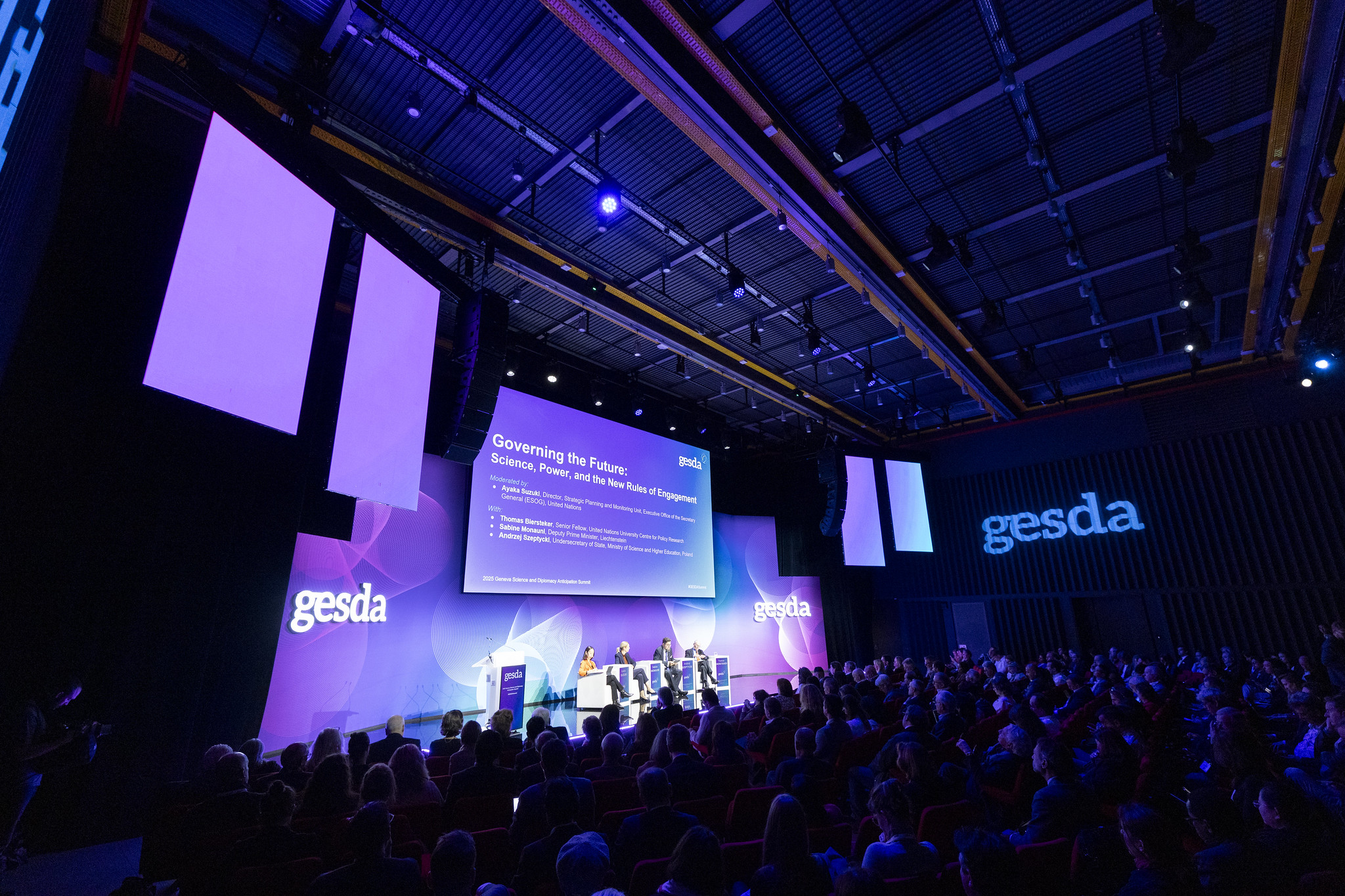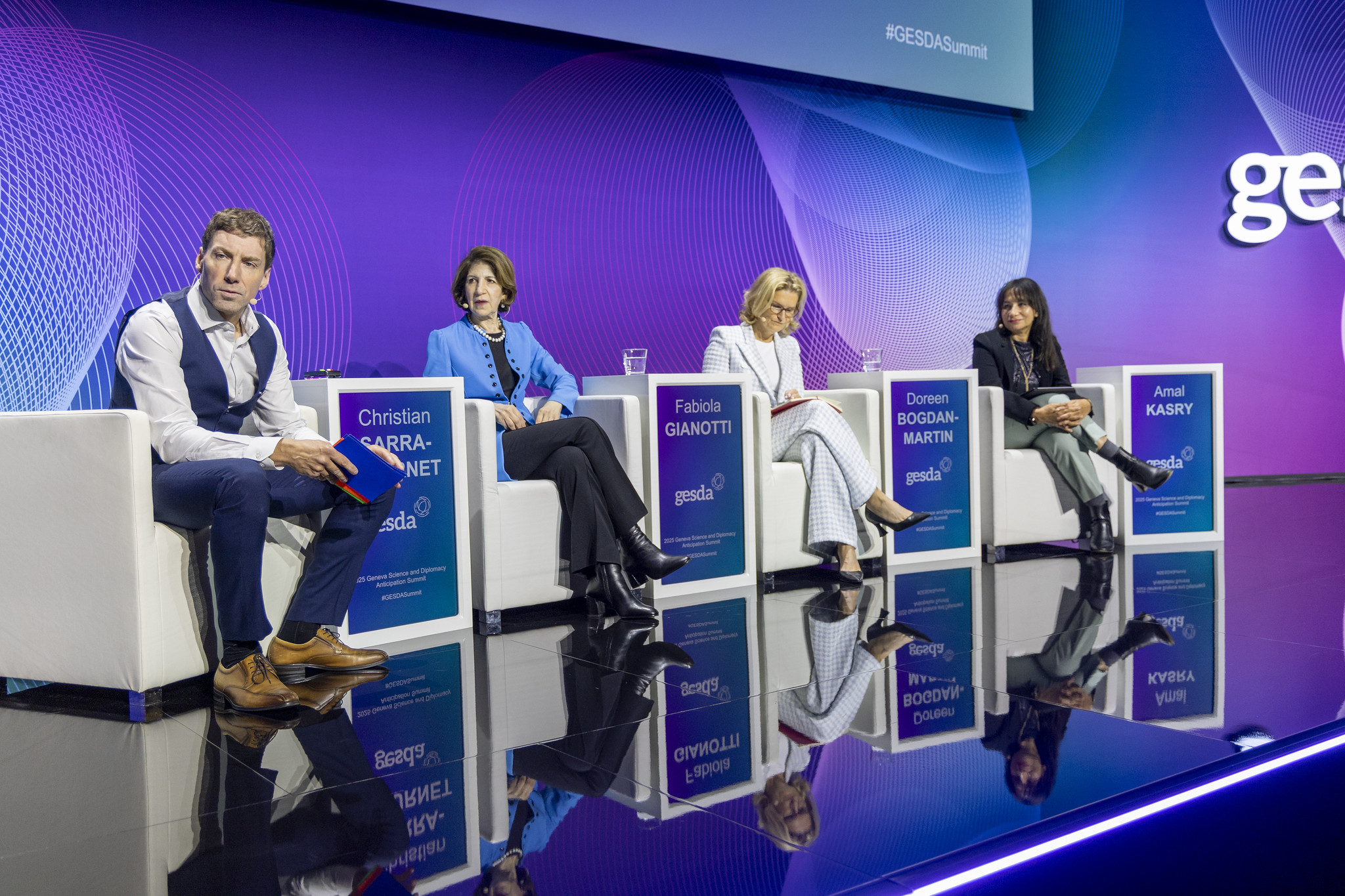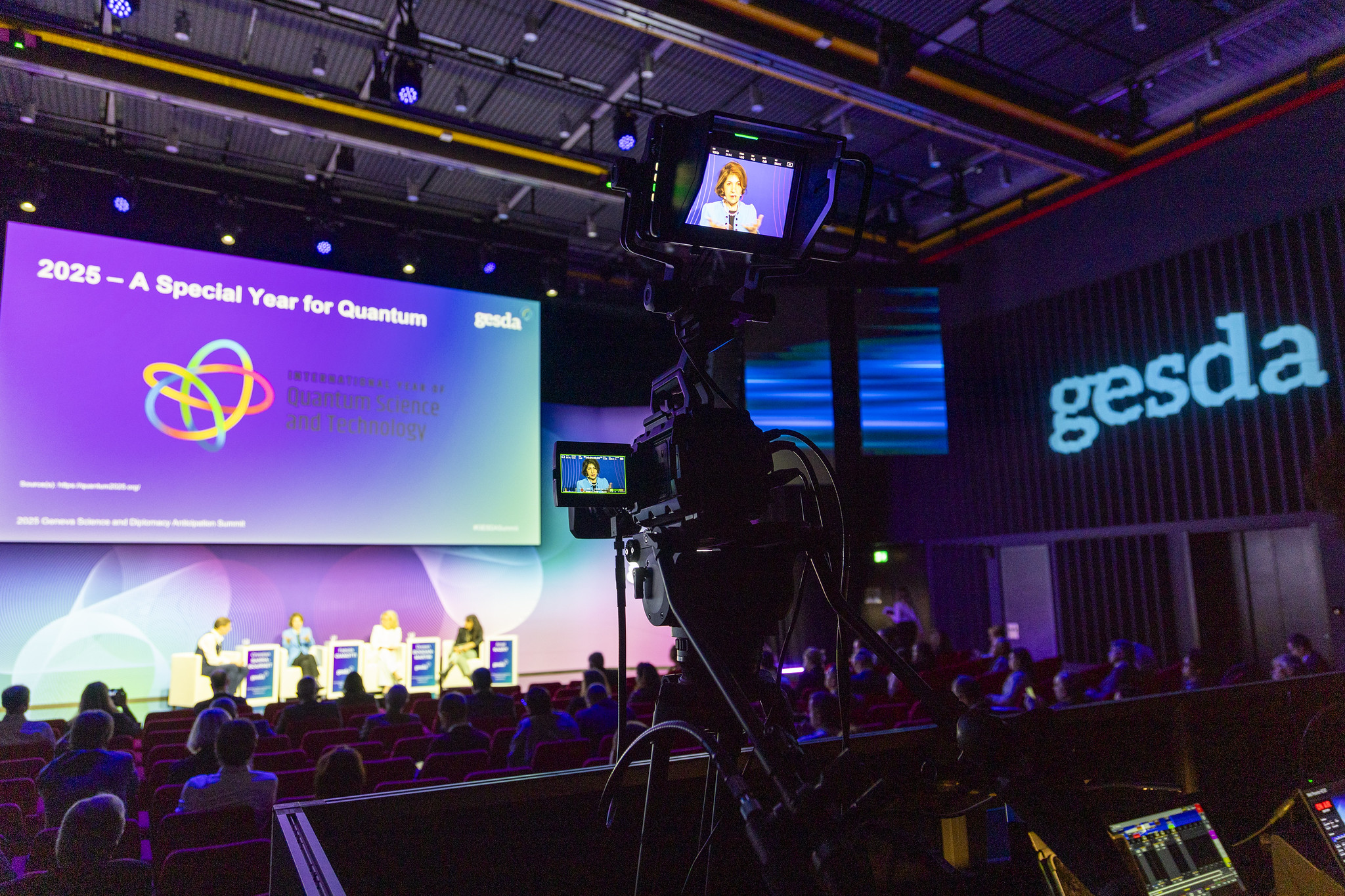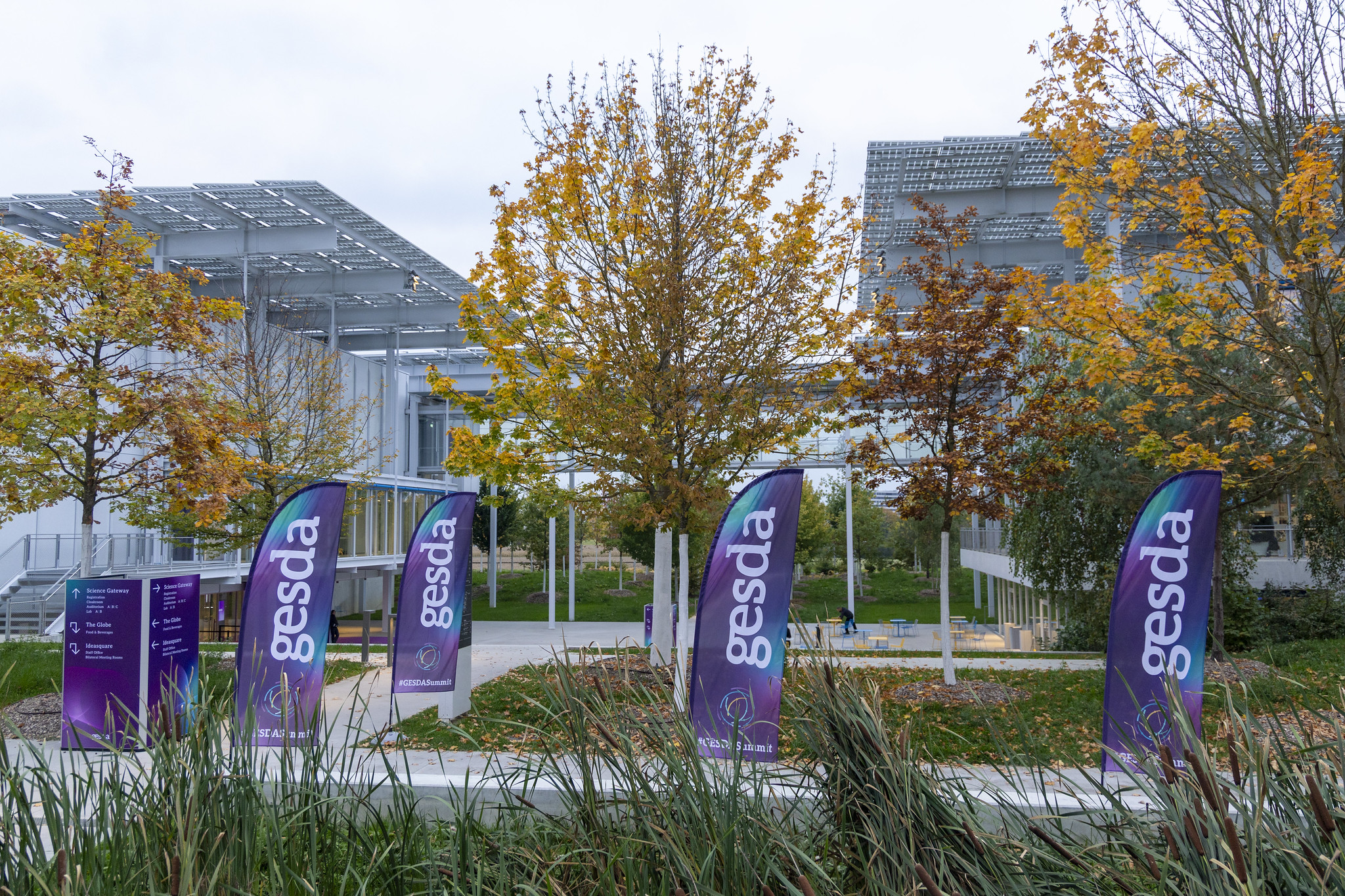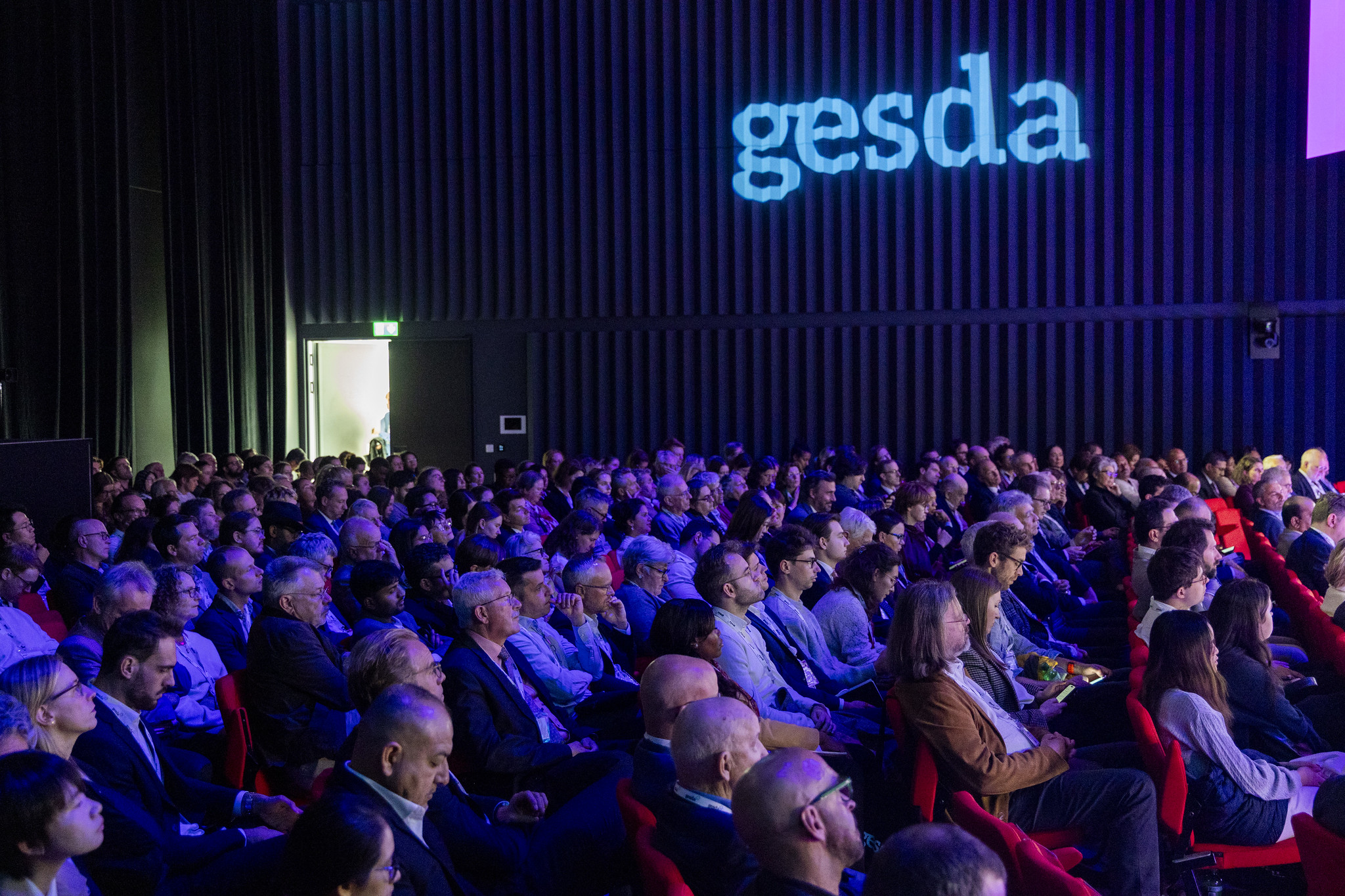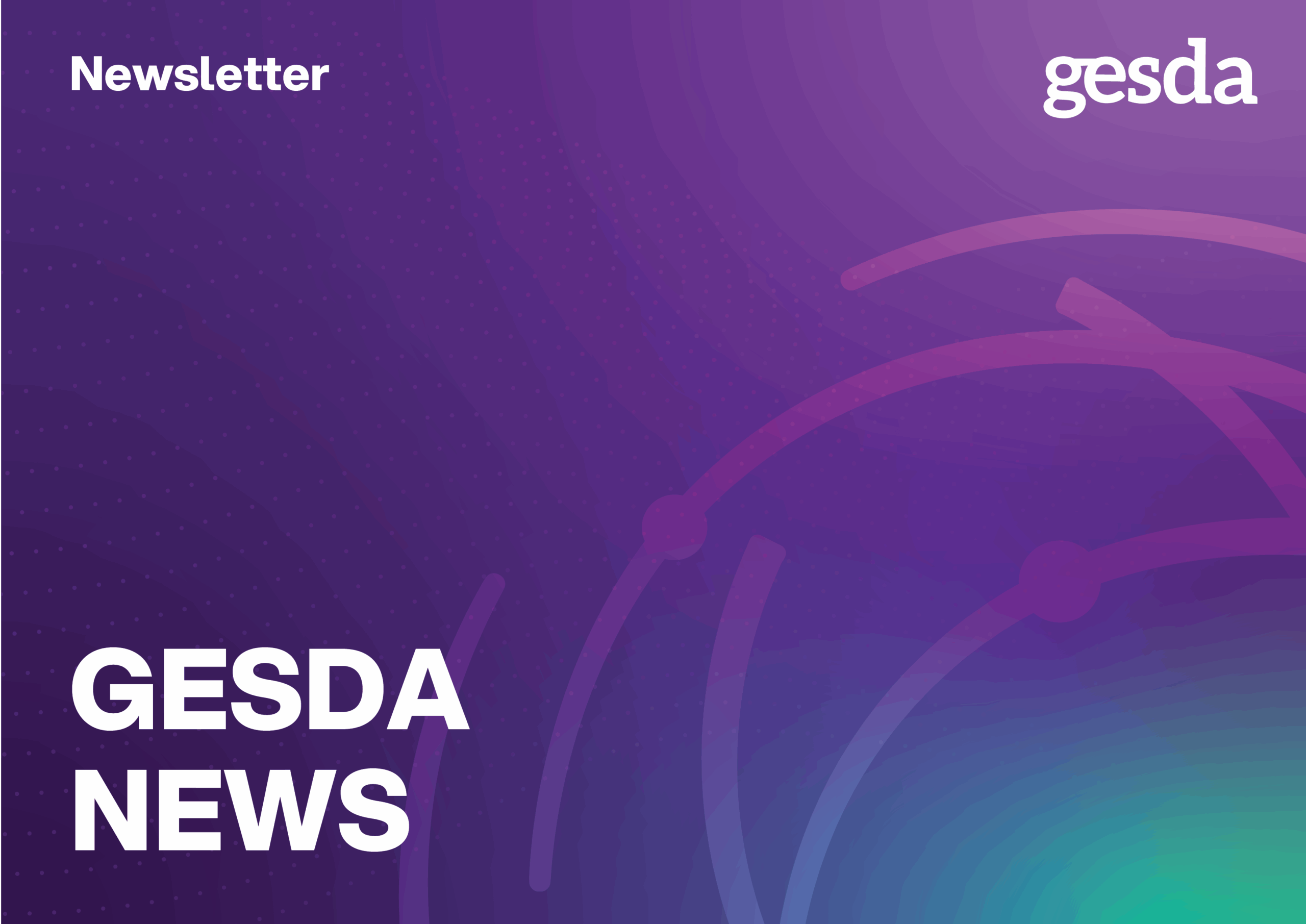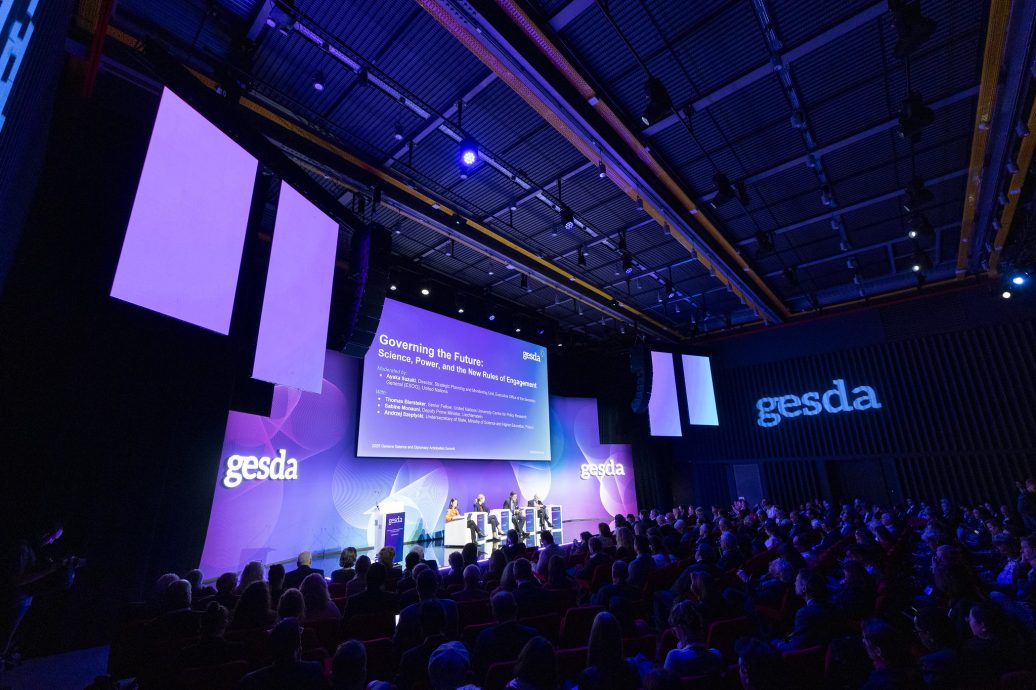
GESDA Summit Draws to Close With Commitment to BCI Governance and New Global Partnerships
Strategic Unveiling: The Brain-Computer Interface (BCI) Commitment
Story by John Heilprin | All photos ©GESDA/Benedikt von Loebell
The fifth GESDA Summit, which brought together more than 1,000 participants from the worlds of science, diplomacy, academia, and economics across 40 public sessions and 15 workshops, concluded on Friday with a decisive shift from analysis to action. The final day’s agenda concentrated on translating scientific foresight into concrete, governance-ready global initiatives, with a focus on the rapidly accelerating field of neurotechnologies.
Among the highlights of the Summit’s concluding day was an in-depth discussion on the dramatic development of neurotechnologies, particularly the ethical and societal directions of brain-computer interface (BCI) technologies. The discussion served as a platform for GESDA’s strategic decision to put together a coalition that can help ensure BCI technologies will benefit all. The commitment mirrors the successful anticipatory model employed for quantum technologies in seeking the establishment of governance structures before technologies become fully mainstream.
Patrick Aebischer, Vice Chairman of GESDA, delivered the news, emphasizing the urgency and maturity of the BCI field. “We have been looking at this subject for some time and it’s mature enough that we are ready to engage,” Aebischer told the Summit, emphasizing that the sheer pace of scientific advancement in the neurotechnology sector “justifies that something more should be done” by GESDA and its counterparts among the international community.
The core objective is to create “a coalition of the willing,” he said, a mechanism for incubating future-oriented discussions and global governance structures. GESDA will begin gathering a core group of key institutional partners, including philanthropic foundations, international organizations, banks, medical institutions, and interested companies. GESDA confirmed that such discussions are underway with founding partners, including Defitech, the WHO Foundation, the Wyss Center, Qatar Foundation, the OECD, EPFL, and the Geneva University Hospitals (HUG).
Quantum Equity and International Reach
The final day also served as the stage for two significant announcements regarding GESDA’s expanding international reach and the advancement of its existing initiatives.
To further its goal of promoting quantum equity through the Open Quantum Institute (OQI), the Summit hosted the announcement of 20 semi-finalists for the XPRIZE Quantum Applications competition. This global competition, launched in partnership with Google Quantum AI and XPRIZE, showcases groundbreaking efforts to apply quantum solutions to real-world humanitarian and development challenges.
GESDA formally announced a new strategic partnership with the STS Forum of Japan. The collaboration is set to expand GESDA’s collaborative network among global leaders in academia, industry, and government. Solidifying this new alignment, GESDA Chairman Peter Brabeck-Letmathe is set to serve on the STS Forum’s board.
Addressing quantum technologies as a bellwether for anticipatory governance, Amal Kasry, Chief of Basic Sciences, Research, Innovation and Engineering at UNESCO, highlighted the urgency, citing a survey where 70% of respondents were from the Global South, and one-third of those nations lacked access to the nascent technology.
The disparity led to a call to action. Kasry urged global leaders to consider quantum technology “not as a race to win, but let us consider it as a common public good to be shared.” She then introduced the summit’s most defining metaphor for global partnership, stating: “Let us consider collaboration as a currency. Let us imagine it’s a currency we invest in. So if we invested in collaboration, [we] would ensure that quantum develops a public good.”
Echoing this mandate, CERN Director General Fabiola Gianotti affirmed that the intergovernmental organization, through the Open Quantum Institute (OQI), acts as a “quantum diplomacy tool” and a brilliant example of open science, where knowledge is accessible to everyone at no cost. She concluded by calling for “collaboration, collaboration, collaboration,” noting a strong collaborative stance is required in an increasingly fragmented world.
Rounding out the mandate, Doreen Bogdan-Martin, Secretary General of the International Telecommunication Union, stressed its role in ensuring technology is “for everyone, everywhere,” and is focused on the technical steps needed for equity, including standards to ensure that quantum networks will be open, interoperable, and secure.
Science, Sovereignty, and the “Digital Currency” of Power
Experts emphasized the importance of nations building scientific strength and foresight without losing openness or collaboration across borders. Ayaka Suzuki, Director of Strategic Planning and Monitoring in the U.N. Secretary-General’s office, said that in a turbulent world, science has become the “digital currency.”
In a challenge to the passive acceptance of the term “geopolitics,” Thomas Biersteker, Senior Fellow at the United Nations University Center for Policy Research, urged the audience to problematize its historical, exploitative origins. He insisted on the need to resist the “politicization of science,” where science-based policy is inverted into policy-based science, calling it an “attack on democracy.” Biersteker also stressed that global governance must broaden beyond nations and intergovernmental organizations to include transnational networks of scientists and expertise.
Offering the perspective of small nations, Sabine Monauni, Deputy Prime Minister of Liechtenstein, highlighted that these countries hold great opportunities during transformation due to their flexibility and capacity for fast decision-making. She cited Liechtenstein’s success as a “first mover” in establishing a regulatory framework for blockchain technology, and noted that her nation, which invests 5.9% of its GDP into research (above the E.U. average), proves that small countries can be laboratories for others, acting as critical, neutral mediators on the international stage.
Detailing his nation’s approach to building capacity, Andrzej Szeptycki, Under-Secretary of State for the Ministry of Science in Poland, focused on “people, money, and standards.” He confirmed a government decision to spend €1 billion on AI-related initiatives through 2030, but cautioned that investment must be protected by local standards.
Szeptycki explained that developing Polish-language large language models (LLMs) is crucial for both quality — to avoid the “garbage in, garbage out principle” — and security, as foreign LLMs can promote biased narratives. Science is based on openness, he said, but its results must serve everybody by reducing the innovation gap.
The Summit concluded with closing remarks that synthesized the spirit of the three-day gathering. Marilyne Andersen, GESDA Director General, Nathalie Fontanet, State Councillor, and Brabeck-Letmathe thanked the 90 speakers for their high-quality reflections and deep engagement. Fontanet provided the closing philosophical note, emphasizing the necessity of the foundation’s work to Geneva’s international community: “Technology creates news forms of solidarity,” she said. “Anticipation is an act of collective responsibility.”
Brabeck-Letmathe extended the appreciation to all contributors for a successful summit, which was designed to lead to more concrete action into the coming year. He also announced the dates and location for the next GESDA Summit, which is scheduled to be held at the Palexpo convention center in Geneva from October 14-16, 2026.



